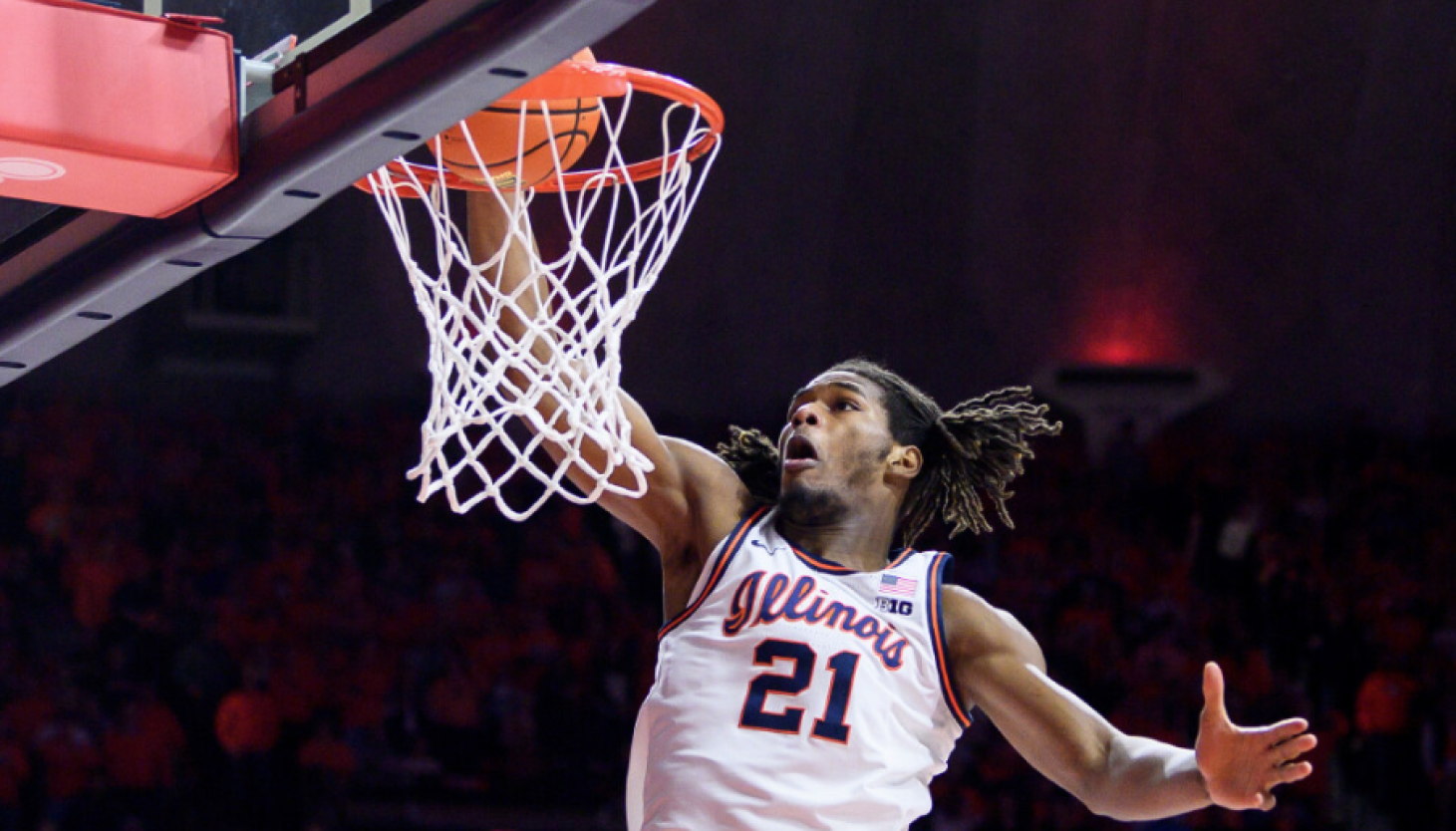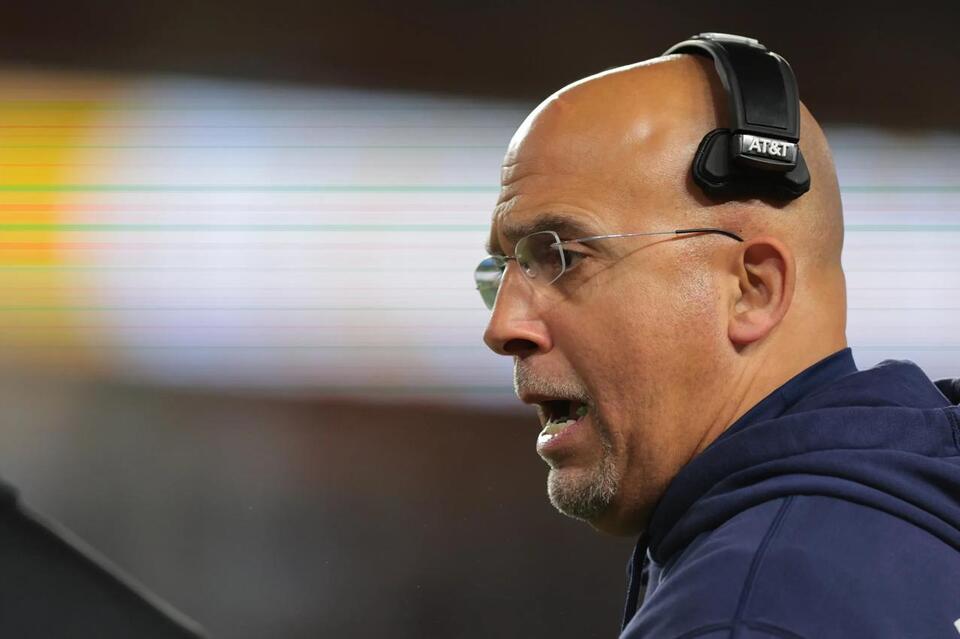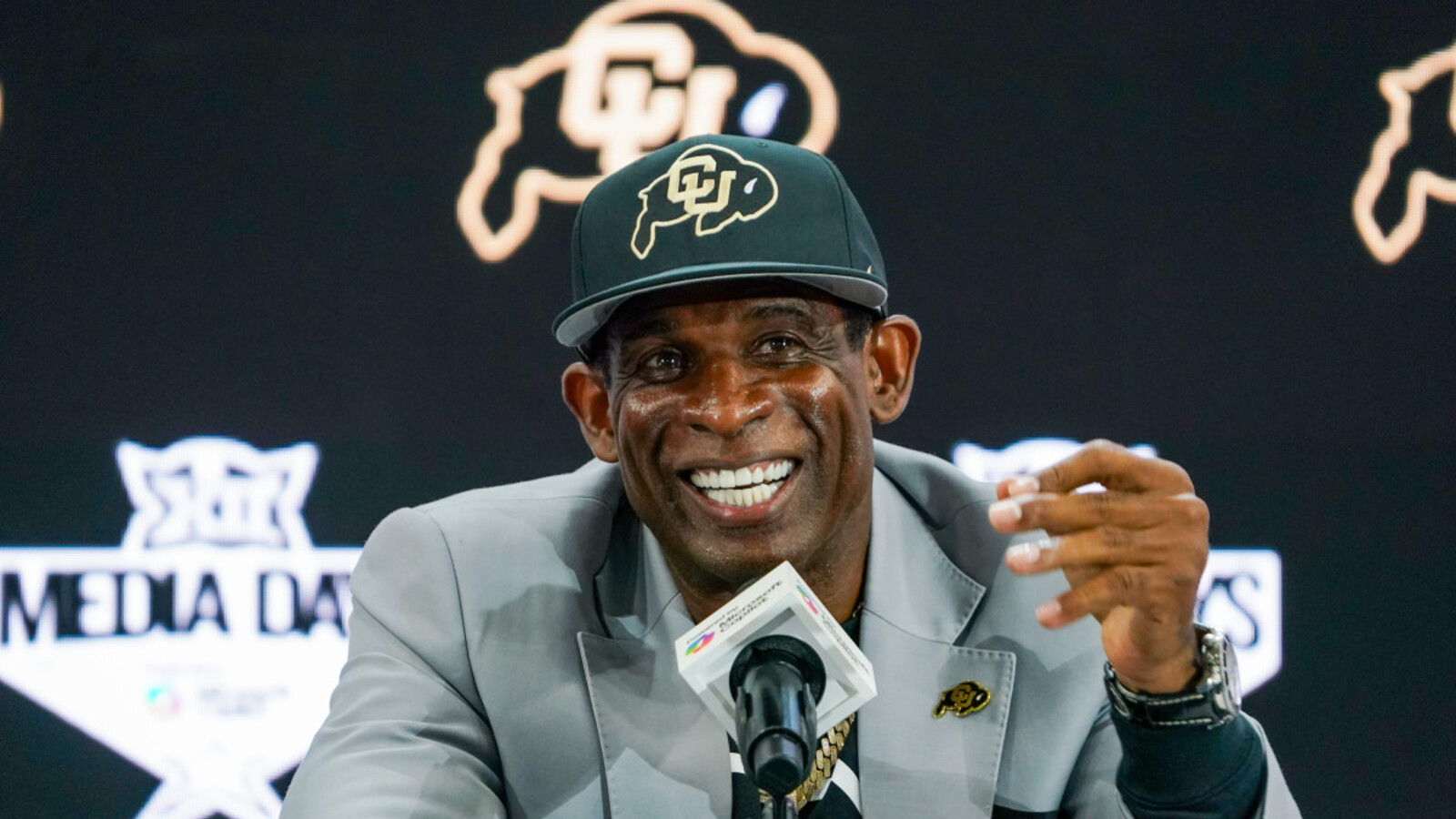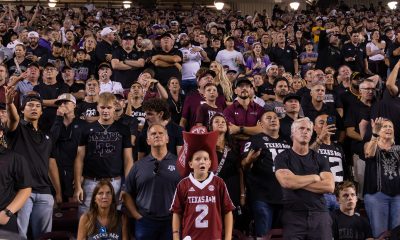NIL
Keeping track of the locals who were active in the transfer portal
There were over 2,000 players who entered their names in the NCAA Division I transfer portal this spring. And for the first time in history, more than half of the points scored in college basketball last season were from players from the transfer portal. So the need for portal impact never has been greater. The […]



There were over 2,000 players who entered their names in the NCAA Division I transfer portal this spring. And for the first time in history, more than half of the points scored in college basketball last season were from players from the transfer portal.
So the need for portal impact never has been greater.
The dizzying pace of the transfer portal includes dozens of former players from the Chicago area and throughout the state. Here are some familiar names from their high school days — the best of the best — including where they’ve been and where they are headed for the 2025-26 season.
Bryce Hopkins, Fenwick
Where he has been: Following a brief and uneventful stop at Kentucky, Hopkins emerged as a star at Providence. While injuries have hampered his career, the 6-6 former two-time all-stater remains a major, ultra-productive weapon at the college level when healthy.
Where he’s headed: Hopkins will stay in the Big East for his final season. He will play for Rick Pitino and a loaded St. John’s team which should be among the nation’s best.
Morez Johnson, Thornton
Where he has been: The former Sun-Times Player of the Year and top-ranked prospect in Illinois in the Class of 2024 spent just one year at Illinois. He made an impact as one of the top freshmen in the Big Ten,
averaging seven points and 6.7 rebounds while playing 18 minutes a game.
Where he’s headed: The powerful 6-9 big man will stay in the Big Ten as part of a Michigan portal class that is among the best in the country.
Owen Freeman, Moline
Where he has been: While at Iowa he averaged 10.6 points and 6.6 rebounds as a freshman. He followed it up last year with 16.7 points and 6.7 rebounds, though a finger injury in late January proved to be season-ending
Where he’s headed: As a legit 6-10 big man and former Big Ten Freshman of the Year two seasons ago, Freeman was one of the most coveted portal players in the country. He’s headed to Creighton where he will have two more years to play.
Rashaun Agee, Bogan
Where he has been: The veteran big man will be at his fifth school in six years this coming season. The most recent stop was at USC, where he averaged 9.4 points and 4.5 rebounds in 20 minutes of action.
Where he’s headed: Agee makes the move from the Big Ten to the SEC as he will finish up his career at Texas A&M. He will be one of eight new transfer-portal additions for first-year coach Bucky McMillan.
Brock Harding, Moline
Where he has been: After leading Moline to a state championship in 2023, Harding spent the last two seasons at Iowa. He started 24 games, playing 25 minutes a game, and averaged 8.8 points and 5.3 assists this past season.
Where he’s headed: TCU and coach Jamie Dixon landed the true point guard who will have two years to play in the Big 12.
Bobby Durkin, Glenbard West
Where he has been: After averaging 8.5 points as a freshman at Davidson, Durkin upped that number to 13.5 points as a sophomore and chipped in 5.9 rebounds. He continued his elite shooting with 91 three-pointers on the year.
Where he’s headed: Durkin had Ohio State and Louisville heavily involved but decided on Minnesota, joining first-year head coach Niko Medved.
Sam Lewis, Simeon
Where he has been: The athletic 6-5 wing enjoyed a breakout sophomore campaign this past season at Toledo, putting up 16.2 points a game while shooting 44% from three. He was an All-MAC second team selection.
Where he’s headed: Lewis was the first portal recruit for first-year coach Ryan Odom of Virginia.
Xavier Amos, Young
Where he has been: The 6-8 forward had a low-key freshman season at Northern Illinois two years ago. But he broke through as a sophomore, averaging 13.8 points and 5.8 rebounds. Then he transferred to Wisconsin where he spent his junior campaign playing a minimal role off the bench.
Where he’s headed: Amos is heading home, committing to Loyola and coach Drew Valentine for his senior season.
Bryce Heard, Homewood-Flossmoor
Where he has been: After leading H-F to a state championship in 2024 as a junior, Heard reclassified and headed to North Carolina State. He played very little as a freshman before coach Kevin Keatts was fired this spring.
Where he’s headed: With three years still to play, Heard will look to make an impact for coach Anthony Grant at Dayton.
Quentin Jones, Marian Catholic
Where he has been: One of the real sleepers in the Class of 2023. All Jones has done in two years of college is produce — first at Cal-Poly (9.7 poings, 4.4 rebounds as a freshman) and then at Northern Illinois (16.6 points, 4.8 rebounds as a sophomore).
Where he’s headed: With Saint Louis
in the Atlantic 10 as his next stop, Jones keeps taking a step up each year he plays in college.
Dai Dai Ames, Kenwood
Where he has been: The 6-2 scoring guard started at Kansas State, followed by a sophomore season at Virginia where he averaged 8.7 points a regular starter.
Where he’s headed: Cal will be his third stop in three years for Ames.
Others: Jurell Baldwin, Hyde Park (Missouri State to Arkansas State); Isaiah Barnes, Simeon (Tulsa to Valparaiso); AJ Casey, Simeon (Saint Louis to Evansville); Gianni Cobb, H-F (Columbia to NIU); Tyler Cochran, Bolingbrook (Minnesota to Rhode Island); Mekhi Cooper, Bolingbrook (Miami-Ohio to Lindenwood); Brayden Fagbemi, Benet (Central Arkansas to UC-Davis); Louis Lesmond, Notre Dame (Harvard to Fordham); Mekhi Lowery, Oswego East (Towson to UIC); Chris Riddle, Kenwood (DePaul to Toledo); Jaden Smith, Kenwood (Fordham to St. Joseph); and Asa Thomas, Lake Forest (Clemson to Furman).
NIL
College athletics the way it was meant to be still exists at Barton
When he was named head football coach at the University of North Carolina, seven-time Super Bowl champion Bill Belichick proudly proclaimed that the Tar Heels would become the “NFL’s 33rd team.” It’s been reported that former Duke basketball star Cooper Flagg earned upwards of $28 million in Name, Image, and Likeness (NIL) compensation and endorsements […]

When he was named head football coach at the University of North Carolina, seven-time Super Bowl champion Bill Belichick proudly proclaimed that the Tar Heels would become the “NFL’s 33rd team.”
It’s been reported that former Duke basketball star Cooper Flagg earned upwards of $28 million in Name, Image, and Likeness (NIL) compensation and endorsements during his one year with the Blue Devils.
And new N.C. State basketball coach Will Wade was investigated and subsequently fired for allegedly paying players during his time at LSU. With no trace of irony, his ability to pay players and construct a winning roster, primarily through the transfer portal, was cited as the primary reason for his hire by the Wolfpack.
To quote the famous line from Bob Dylan: “The times they are a-changin’.”
The NCAA that most of us know is virtually unrecognizable now. Terms like NIL, transfer portal, conference realignment and House settlement have forever altered the landscape of college sports. There is no question that we are looking at the professionalization of college football and basketball at the Division I level. The term “student-athlete” is nothing but a quaint reminder from the past, and the reality is that most football and basketball players are now more employees than students, and the whole enterprise has become transactional.
NIL legislation started with good intentions a few years ago. Student-athletes should be compensated for their name, image and likeness, especially now that college athletics has become a multi-billion-dollar business. However, NIL is a misnomer, as there were few guardrails put in place by the NCAA, and it quickly evolved into a recruiting inducement and pay-for-play system. To be clear, I don’t begrudge the athletes who are capitalizing; I wish NIL had been around in the 80’s when I played basketball at William & Mary. Back then, I was thrilled with an occasional post-game sandwich and maybe a pitcher of beer!
This new era of college sports is still wildly popular. Stadiums remain full, TV ratings go up every year and donors are spending millions to help build championship-caliber rosters. There is a never-ending chase for more money, and increased spending. And like many of you, I remain a fan and am still captivated by the College Football Playoff and March Madness (both of which are looking to expand, by the way).
I believe strongly in the power of sports to lift people up, to teach valuable lessons and forge lasting relationships. I know it because I lived it as a college basketball player and coach, and now as an athletic director. I know that coaches are educators, leaders, role models and mentors. I know the incredible value that a college degree holds, and the way it can impact a family for generations.
At Barton College, we approach athletics from a transformational standpoint, not a transactional one. We offer life-changing opportunities to our 700 student-athletes, and our focus is guiding them down the path of resilience and growth. You’ll see them not only on the field or court, but also serving as orientation leaders, resident assistants and research associates. While we play to win — and we do it a lot — the biggest “game” on the schedule is always graduation day. Athletics supports the mission and business model of the college, providing a positive and nurturing student-athlete experience, and competing to win in the classroom, in competition and in the Wilson community.
You can root for the Heels, Devils, Pack, or Pirates, but we are Wilson’s hometown college team, and we have no doubt you’ll root for the Bulldogs.
We have great coaches and staff, beautiful facilities, and talented student-athletes who compete at a high level. You know what we are? We’re what college athletics used to be, and what it was meant to be. We may have some navigate the transfer portal and a few Bulldogs dipping their toes into the NIL waters, but most of our student-athletes, including football and basketball players, are here to get a first-class education and to learn and grow as people.
Our games are affordable and many are free, and you can bring your kids onto the field or court after the game for a photo, no problem.
I look forward to seeing how Belichick and Wade do, and I’ll be rooting for Cooper Flagg.
But mostly, I’m proud to be part of the team, Wilson’s hometown team, at Barton College, where we still do it the right way.
Ken Tyler is Vice President and Director of Athletics at Barton College. A former NCAA Division I basketball player and coach in Divisions I, II and III, Tyler has spent over 30 years in college athletics. Prior to Barton, he served as Director of Athletics at the University of Mary Washington and West Virginia Wesleyan College. Tyler resides in Wilson with his wife Dr. Leona Ba Tyler.
NIL
College Football Analyst Believes NIL Issues Aren’t the Only Reason James Franklin Lost Penn State’s Recruiting Battles
James Franklin has turned Penn State into a consistent winner, but one recruiting expert believes the Nittany Lions are falling behind in the battles that matter most. While Franklin’s 101-42 record speaks for itself, the question remains: why can’t Penn State land the elite recruits needed to compete for championships? Why Is Penn State Losing Top […]

James Franklin has turned Penn State into a consistent winner, but one recruiting expert believes the Nittany Lions are falling behind in the battles that matter most.
While Franklin’s 101-42 record speaks for itself, the question remains: why can’t Penn State land the elite recruits needed to compete for championships?
Why Is Penn State Losing Top Recruiting Battles Despite James Franklin’s Success?
James Franklin left Vanderbilt after winning 61.5% of his games there. That performance ranks as one of the best coaching jobs of the last 25 years. No one wins that many games at Vandy, a school rich in academics but a football pauper.
When he arrived at Penn State, he encountered another, unexpected problem. Franklin needed to help distance the program from the Joe Paterno Era, which was filled with championships but also controversy.
Bill O’Brien succeeded Paterno, but you could still sense the ghosts of bad memories that overshadowed greatness. Franklin built the Nittany Lions into perennial winners. In 11 seasons, his teams finished with double-digit victories. Plus, the school keeps turning out NFL stars, like Saquon Barkley and Micah Parsons.
However, in the NIL era, the school cannot get over the metaphorical hump. Recruiting expert Brian Smith stopped by the “Locked On Nittany Lions” podcast to discuss why the team cannot secure the best of the best in the new money period of the sport.
“NIL is a big part of it, but I think the biggest is still relationships. They just lost (recruits) to teams with excellent assistant coaches. Penn State will have some of the battles go their way. It’s just par for the course.”
Breaking down that quote reveals the real issue. NIL money matters, and when you share a conference with Ohio State, Michigan, and Oregon, you must find a workaround or get creative. According to 24/7 Sports, Franklin’s Lions hold down the 15th spot in the 2026 rankings. In most conferences, that would guarantee a championship. However, the Big Ten is no ordinary conference.
What Can Franklin Do to Fix Penn State’s Recruiting Problems?
Jumping into the pool for four- and five-star recruits sounds good, but what’s the backup plan when they don’t arrive? Hitting the portal for above-average players isn’t always a guaranteed bonus.
Hiring great recruiters is something Franklin can fix. Recruiting remains the lifeblood of the college game. Building connections with area, state, regional, and national high school programs matters. Walking into a high school coach’s office and dropping your business card on the desk isn’t enough for Penn State. They are not Alabama.
RELATED: James Franklin, Penn State Lose 2026 4-Star QB Peyton Falzone to Auburn in Shocking Flip
One underdiscussed aspect of the recruiting issues is that Franklin’s name perennially appears as a candidate for just about every major coaching job. From afar, that hangs above the program. Is it a ploy to earn a raise or a more extended contract? Or does Franklin actively search for jobs?
Franklin can coach and run a top football program. His 101-42 record with Penn State solidifies that fact. However, at what point are 10 wins during the regular season insufficient?
Always the bridesmaid, the football program must find a way to break through. Getting to the CFP isn’t enough, nor is winning a few games. To cement his legacy, Franklin must bring a championship to State College. Can the team find a way to not only survive the conference grind but also catch fire in the playoffs?
NIL
Amended college sports bill expected to be introduced in U.S. House of Representatives
Members of the U.S. House of Representatives are expected to introduce an amended college sports bill, a source told On3’s Pete Nakos. The Student Compensation and Opportunity through Rights and Endorsements (SCORE) Act could be introduced as early as Thursday. The bill – which codifies the House v. NCAA settlement – could easily pass the House […]

Members of the U.S. House of Representatives are expected to introduce an amended college sports bill, a source told On3’s Pete Nakos. The Student Compensation and Opportunity through Rights and Endorsements (SCORE) Act could be introduced as early as Thursday.
The bill – which codifies the House v. NCAA settlement – could easily pass the House of Representatives, but would need seven Democratic votes to pass the Senate. If introduced Thursday, the first subcommittee markup could come as early as next Tuesday, and a committee markup would happen by the end of the month.
Last month, Reps. Brett Guthrie (R-Ky.) and Gus Bilirakis (R-Fla.) released a discussion draft of the bill. They described it as a “tri-committee effort to stabilize” the NIL marketplace.
“As a part of a coordinated multi-Committee effort to improve the student-athlete experience and preserve the educational mission of the institutions they represent, Energy and Commerce plans to consider a discussion draft to help address the broad set of challenges facing college athletics,” Guthrie said in a statement.
“NIL presents outstanding opportunities for student-athletes, but the volatility and frequency of changes have left both teams and players without a reliable foundation on which to plan. I want to thank Chairman Bilirakis for his hard work on this issue and this draft, and I am hopeful that upcoming conversations can build a strong coalition and make college athletics the best it can be.”
The amended version of the act, obtained by Yahoo! Sports’ Ross Dellenger, would grant liability protection and preempt state NIL laws. It would also include an anti-employment clause and usher in regulation for agents. NIL deals would also need to hold a “valid business purpose.”
More on the NCAA’s push for federal legislation
Following approval of the House v. NCAA settlement, another college sports bill was introduced. U.S. Representatives Lisa McClain (R-Mich.)and Janelle Bynum (D-Ore.) introduced the “College Student-Athlete Protections and Opportunities through Rights, Transparency and Safety Act“, dubbed the College SPORTS Act.
President Donald Trump has also shown interest in the future of college sports and was in the process of forming a commission earlier this year. Former Alabama head coach Nick Saban and Texas Tech board chairman Cody Campbell – who founded the school’s NIL collective, The Matador Club – were expected to co-chair the commission. However, the plans were paused last month amid an anticipated push for federal legislation.
Trump also reportedly considered an executive order regarding college sports. That came about after he met with Saban at a commencement event at Alabama in May.
NIL
Deion Sanders Says the Quiet Part Out Loud About the College Football Playoff and NIL Spending
Due to an undisclosed health issue, college football fans haven’t heard much from Colorado coach Deion Sanders this offseason. However, that changed on Wednesday as Sanders was on hand for the Big 12 Media Days in Frisco, Texas. The third-year head coach, who is coming off a 9-4 season in 2024, discussed everything from Colorado’s quarterback […]

Due to an undisclosed health issue, college football fans haven’t heard much from Colorado coach Deion Sanders this offseason.
However, that changed on Wednesday as Sanders was on hand for the Big 12 Media Days in Frisco, Texas. The third-year head coach, who is coming off a 9-4 season in 2024, discussed everything from Colorado’s quarterback battle, his theme music and what is going wrong with college football.
Oddly enough, while the latter may be the most complex, it was the only one for which he had a definitive answer. When asked about how NIL should be patrolled with the implementation of revenue, Sanders did what he does best: he said what everyone is thinking but not willing to say.
“I wish it was a cap,” Sanders said. “You know, like the top of the line player makes this. And if you’re not that type of guy, you know you’re not gonna make that. That’s what the NFL does. So the problem is you got a guy that’s not that darn good. He could go to another school and they give him a half a million dollars. You can’t compete with that, it don’t make sense … All you have to do is look at the playoffs and see what those teams spent and you understand darn near why they in the playoffs.
“It’s kind of hard to compete with somebody who’s giving $25-30 million to a darn freshman class.”
NIL
Deion Sanders suggests radical change to college football
Colorado coach Deion Sanders thinks one radical change could help address the NIL issues that continue to go unaddressed around college football. Speaking at Big 12 Media Days on Wednesday, Sanders was asked how he believes NIL should be handled by the NCAA. The coach essentially called for some sort of salary cap to create […]

Colorado coach Deion Sanders thinks one radical change could help address the NIL issues that continue to go unaddressed around college football.
Speaking at Big 12 Media Days on Wednesday, Sanders was asked how he believes NIL should be handled by the NCAA. The coach essentially called for some sort of salary cap to create some parity across the sport.
“I wish there was a cap. The top of the line player makes this, and if you’re not that type of guy, you know you’re not going to make that. That’s what the NFL does,” Sanders said. “The problem is, you’ve got a guy that’s not that darn good, but he can go to another school, and they give him a half a million dollars. You can’t compete with that.
“All you have to do is look at the playoffs and see what those teams spent. You understand darn well why they’re in the playoffs. It’s kind of hard to compete with someone who’s getting $25-$30 million to a darn freshman class. It’s crazy. We’re not complaining, because all these coaches up here and coach their butts off … but what’s going on right now don’t make sense. We want to say stuff, but we’re trying to be professional.”
“All you gotta do is look at the [CFP] and see what those teams spent, and you’ll understand darn well why they’re in the playoffs.”
Deion Sanders on NIL and the current state of college football. pic.twitter.com/y6A5C3dWUP
— ESPN (@espn) July 9, 2025
Sanders’ point is that teams with the most NIL funds available to them are inevitably going to land the best players and make the playoffs repeatedly. NIL creates plenty of other problems and nudges players to transfer sometimes, but the wealth is not exactly being spread around.
We have seen that a big NIL budget is no guarantee of success. There is no doubt, however, that it helps. The irony is that Sanders used the transfer portal to establish his program nationally, but there is only so much he can do now that other programs are catching up.
NIL
Why Colorado’s Deion Sanders pushing for college football salary cap
NIL has dramatically altered the college sports landscape. Now that colleges are allowed to pay student-athletes, players can often go to the highest bidder — usually a Power 5 program. That’s why Colorado head coach and Pro Football Hall of Famer Deion Sanders is calling for a salary cap in college football. Speaking at Big […]
NIL has dramatically altered the college sports landscape. Now that colleges are allowed to pay student-athletes, players can often go to the highest bidder — usually a Power 5 program. That’s why Colorado head coach and Pro Football Hall of Famer Deion Sanders is calling for a salary cap in college football.
Speaking at Big 12 Media Day on Wednesday, Sanders explained why schools without deep financial resources are at a disadvantage when trying to attract elite talent.
“I wish there was a cap. Like, the top-of-the-line player makes this, and if you’re not that type of guy, you know you’re not going to make that. That’s what the NFL does,” said Sanders.
“So the problem is, you got a guy that’s not that darn good, but he could go to another school and they give him a half-a-million dollars. You can’t compete with that. And it don’t make sense.”
Deion Sanders says he wishes college football had a salary cap, like the NFL does:
“All you gotta do is look at the College Football Playoff and see what those teams spent, and you’ll understand darn well why they’re in the playoffs.”pic.twitter.com/tWaO8t8Ze2
— Ari Meirov (@MySportsUpdate) July 9, 2025
Sanders pointed to the programs that routinely make the College Football Playoff — like Alabama, Texas, and Ohio State — as examples of schools that can afford to spend tens of millions on incoming freshman classes. That kind of financial muscle, he said, creates a lopsided playing field
“All you have to do is look at the playoffs and see what those teams spent and you understand darn near why they’re in the playoffs,” he said. “It’s kind of hard to compete with somebody who’s giving $25–30 million to a darn freshman class. It’s crazy.”
Sanders continued: “What’s going on right now don’t make sense. We want to say stuff but we’re trying to be professional, but you’re going to see the same teams darn near the end, with somebody who sneaks up in there, but the teams that pays the most is going to be there in the end.”
Colorado had two of the highest NIL earners in college football in 2024 in Travis Hunter and Shedeur Sanders, who are now in the NFL with the Jacksonville Jaguars and Cleveland Browns, respectively. The university also shut down its NIL collective before the House v. NCAA settlement, which now allows schools to directly pay athletes across all sports a combined $22 million annually.
In his second season at Colorado, Deion Sanders led the Buffaloes to a 9–4 record after going 4–8 in his first year. It was a solid 2024 campaign — Hunter won the Heisman Trophy, and Colorado finished 25th in the final AP Top 25 poll. However, with the departures of Hunter and Shedeur Sanders, expectations have cooled for the 2025 season.
-

 Technology2 weeks ago
Technology2 weeks agoPet fitness and wellness trends for a healthier and happier dog
-

 College Sports2 weeks ago
College Sports2 weeks agoWAC to Rebrand to UAC, Add Five New Members in 2026
-

 Motorsports1 week ago
Motorsports1 week agoWhy Cosmetics are Making Up for Lost Time in Women’s Sports
-
College Sports3 weeks ago
Women's Basketball Thanks Shannon LeBeauf for 14 Seasons
-

 Professional Sports3 weeks ago
Professional Sports3 weeks agoAlex Pereira responds to rumors of UFC heavyweight title fight with threatening message
-

 College Sports3 weeks ago
College Sports3 weeks agoAlabama Basketball
-

 Professional Sports3 weeks ago
Professional Sports3 weeks agoFrancis Ngannou sends Dana White a message following Jon Jones' shock UFC retirement
-

 College Sports2 weeks ago
College Sports2 weeks agoA new era of Dickinson hockey begins behind the bench – The Dickinson Press
-

 Motorsports2 weeks ago
Motorsports2 weeks agoNASCAR This Week – Patriot Publishing LLC
-

 Sports2 weeks ago
Sports2 weeks agoSEC Conference imposing a fine will create the opposite effect.




 (via @wangfei890226/IG)
(via @wangfei890226/IG)

























